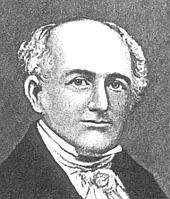Occasionally at a law firm the weirdest laws are encountered during research. These are amongst many laws that are written so baffling and open ended that the narrative can be twisted anyway required to get a win by the prosecution. A well-seasoned attorney knows how to utilize this for better positioning to defend their client. So choosing your attorney will be one of the most important decisions in your defense case. Finding one that you can believe in requires research. Here are some laws still on the books in Michigan that have turned up during research.
BLASPHEMY IS STILL ILLEGAL IN MICHIGAN.
Blasphemy laws used to be very common in the United States, but there are still some in existence, including in Michigan, where cursing God is a G**-d*** misdemeanor.
The Law
750.102 Blasphemy; punishment.
Sec. 102. Punishment—Any person who shall wilfully blaspheme the holy name of God, by cursing or contumeliously reproaching God, shall be guilty of a misdemeanor.
History: 1931, Act 328, Eff. Sept. 18, 1931 ;– CL 1948, 750.102
Former Law: See section 17 of Ch. 158 of R.S. 1846, being CL 1857, § 5872; CL 1871, § 7707; How., § 9293; CL 1897, § 11706; CL 1915, § 15480; and CL 1929, § 16832.
See the law here on the Michigan Legislature website
Can you sue for blasphemy?
A prosecution for blasphemy in the United States would be a violation of the U.S. Constitution, and no blasphemy laws exist at the federal level.
The First Amendment
Blasphemy laws punish people who make oral or written statements that are understood to express irreverence for sacred things.
First Amendment eradicated blasphemy laws
Long a feature of English and colonial societies and still prominent in some theocratic regimes, laws against blasphemy have disappeared in the United States because of the First Amendment. Such laws were most frequently associated with the kind of religious establishment that the First Amendment limited at the national level and that courts later applied via the Fourteenth Amendment to the states.
State powers used to punish blasphemy
In the Bible, Leviticus 24:15–16 calls for the stoning of anyone who curses the God of Israel. Ancient Greece and Rome had similar prohibitions against those who spoke ill of the gods.The trial of Jesus was predicated in part on the idea that he had made blasphemous claims to be God.
Although Christians initially sought converts through speech and persuasion and stressed the separation of religious and political duties (Jesus had said, “Render unto Caesar the things that are Caesar’s and to God the things that are God’s”), after Emperor Constantine I proclaimed Christianity the official religion of Rome, Christians increasingly used state powers to punish both those who blasphemed God and those within their own ranks whom they believed to be heretics.
With the dawn of the Reformation, Catholics and Protestants used laws not only to battle one another but also to strike out at unbelievers. The English jurist William Blackstone defined blasphemy as “denying the being or providence of God, contumelious reproaches of our Saviour Jesus Christ, profane scoffing at the Holy Scripture, or exposing it to contempt or ridicule” (as quoted in The Catholic Encyclopedia).
Colonists set blasphemy standards in the United States
Just as the English punished those who blasphemed the doctrines of the established church, so too the Pilgrims set standards of orthodoxy in the infant United States that they enforced by the sword. Massachusetts banished, and occasionally executed, Quaker dissenters who refused to stay away from the state.
Most of the 13 original states established churches, and many officially restricted office-holding to Trinitarians or to those who professed to believe biblical doctrines. By contrast, the U.S. Constitution prohibited test oaths for federal officials, but it did not interfere with existing state practices. In time, however, the prohibition on federal religious oaths, as well as the provisions of the First Amendment, had a liberalizing effect on state practices.
State courts upheld blasphemy laws
Two famous 19th century cases epitomized the lingering remnants of blasphemy laws. In People v. Ruggles (N.Y. 1811), a New York court upheld the conviction of a man who referred to Jesus and his mother in unflattering terms. Even though New York no longer had a statute on the subject, the court’s chief judge, James Kent, ruled that the offense of blasphemy violated the state’s common law as carried over from England (but Kent believed that the state laws prohibited blasphemy only against the Christian religion).
In Commonwealth v. Kneeland (Mass. 1838), the Supreme Court of Massachusetts, led by Lemuel Shaw, upheld the conviction of a publisher who denied the existence of God, Jesus, and miracles. Both convictions resulted in relatively short jail terms (and in Ruggles a fine).

Abner Kneeland was the last man jailed for blasphemy in the United States. In his 1838 case, he was convicted of blasphemy for publishing articles about prayer and the Immaculate Conception, and indicating he did not believe in God, Christ, miracles, the resurrection or immortality. Blasphemy laws soon disappeared from the U.S. due to the First Amendment. (Image via Wikimedia Commons, public domain)
Court later said governments could not supress attacks on doctrine
In Burstyn v. Wilson (1952), the U.S. Supreme Court overruled a state supreme court decision and declared that governments had no business suppressing attacks on religious doctrines.
Read the rest Here at the First Amendment Encyclopedia
Interested in how the rest of the world does it?
See your tax dollars at work here at The Law Library of Congress
Disclaimer:
Most people by now realize that the internet is full of opinions, market driven results, embellishment of facts, personalize view points, bias, censorship and plain old BS. Laws, regulation, and many things evolve and change over time. Although attempts to present facts are made and could be current at the time. Please do your research or consult an attorney before acting as if information provided is fact. Some information is gathered through internet sources while other information is confirmed on government websites.
Komorn Law Social Media
Recent Posts
- A visit with a kick

- Woman tried to board flight with 56 pounds of marijuana

- You’re too stupid to store a gun properly

- Illegal Firearms in Michigan

- Restoring Second Amendment Rights in Michigan

- What is corruption? U.S. Supreme Court will hear arguments

Tag Cloud
2nd amendment 2020 2021 BMMR CBD corruption. prosecutors dispensary DUI forfeiture gun rights hemp komornlaw lara law enforcement abuse laws Legalization marijuana Medical Marijuana Michigan michigan laws michigan news MMFLA MRA news police politics Recreational Cannabis science usa news Your Rights
DISCLAIMER
This post may contain re-posted content, opinions, comments, ads, third party posts, outdated information, posts from disgruntled persons, posts from those with agendas and general internet BS. Therefore…Before you believe anything on the internet regarding anything – do your research on Official Government and State Sites, Call the Michigan State Police, Check the State Attorney General Website and Consult an Attorney – Use Your Brain.








